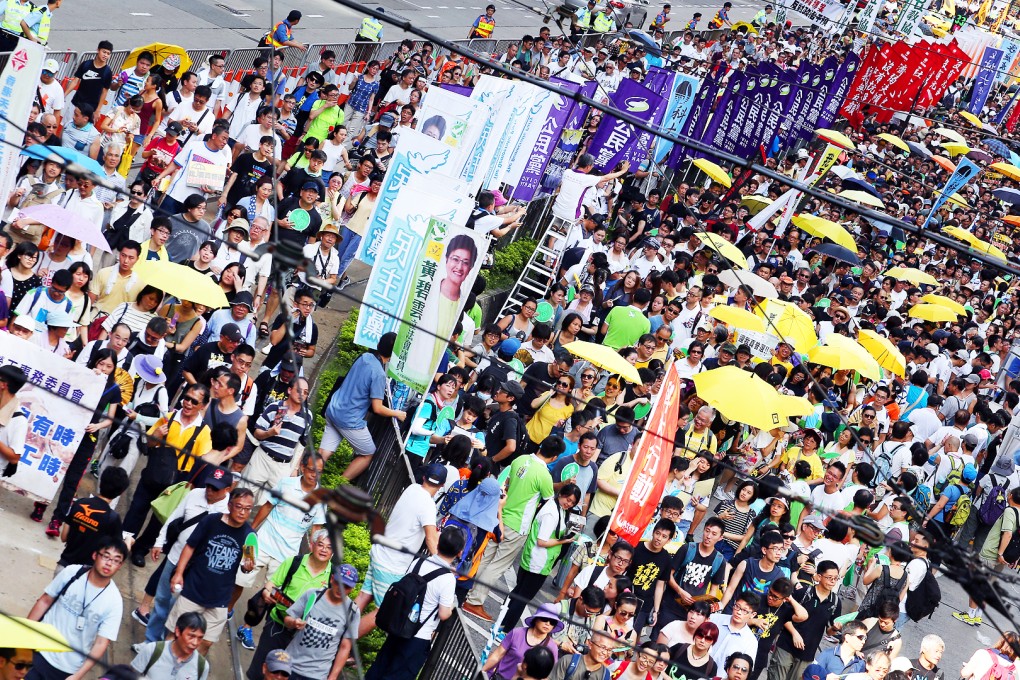Hong Kong's democracy advocates zoom in on district work after low July 1 march turnout
New movement is to zoom in on small neighbourhoods after low march turnout, aiming to help people understand district councils' political role

A new civil society group is turning the focus of its democracy push from the big July 1 rally to small neighbourhoods, moving beyond the annual march whose low turnout this year continues to baffle its organisers.
Experienced activists and scholars who launched the Community Citizen Charter Movement late last month are eyeing district-level work with new initiatives in the pipeline.
The movement is founded by eight groups and six individuals, including Occupy Central co-founder Benny Tai Yiu-ting, former legislator Margaret Ng Ngoi-yee, Occupy student leader Alex Chow Yong-kang and cultural studies scholar Chen Yun-chung.
Chen, a Lingnan University associate professor, said yesterday that the initiative was meant to be a "voters' movement".
"We want to politicise the [November] district council polls and encourage people to understand the political role of the city's 18 district councils," he said.
"This is something political parties may not want to do because residents care more about what goodies and freebies the candidates have to offer."